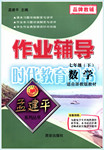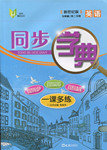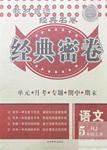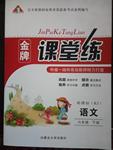题目内容
When I was a child, my parents always told me that I should never talk to strangers. This was part of a whole list of things I should never do : Never accept food or candy from strangers,never get in a car with strangers,and so on.
But if we didn’t start a conversation with strangers, we,d never make new friends. We,d never get a job.①We may miss the joy that comes from talking with strangers. And the more people you know, the more chances you can find.
The following passage offers you some advice on how to ②break the ice.
Don,t just stare at your shoes. Go and say “Hi” to that new guy. It will be easier to break the ice if you know more about different cultures.
British:Beautiful day, isn’t it?
The weather in Britain is changeable. So, it’s one of the topics the British care most about. And there’s a simple rule:Say “Yes” whether you agree with the person’s idea on the weather or not.③That’s because the British start a conversation using the weather so that they can continue their talk.
French:Where did you go on holiday?
To talk with a French person, the safest way is to ask about his or her last holiday. French students enjoy a 10-to-15-day holiday every two months. French employees(雇员)get more than six weeks of holidays per year.
American:So,where are you from?
The US is so big and people move so often that location is always a source (来源) of talk. You can try to find a connection with the place they’re from. For example, if someone’s from Los Angeles, you could say : “Oh, I have a friend who studied there.”
56. 将文中①处划线句子翻译成汉语。
_______________________________________________
57. 将文中②处划线短语翻译成汉语。
_______________________________________________
58将文中③处划线句子改写成同义句。
That’s because the British start a conversation using the weather ______ ______their talk.
59. What do you usually talk about to start a conversation with a French person?
_______________________________________________
60. What is the main idea of the passage?
_______________________________________________
56. 我们可能会错过与陌生人交流的快乐。
57. 打破沉默/打破僵局/开始说话。
58. to continue /for continuing
59. ( I/We can/usually talk about) his/her (last) holiday; A holiday/Holidays.
60. How to start/begin a conversation with a stranger/How to break the ice ( with strangers).
How do people start/begin a conversation? /How do people break the ice( with strangers) ?

 作业辅导系列答案
作业辅导系列答案 同步学典一课多练系列答案
同步学典一课多练系列答案 经典密卷系列答案
经典密卷系列答案 金牌课堂练系列答案
金牌课堂练系列答案I used to be very close to my father when I was a child. He gave me almost everything I wanted. Whenever I quarreled with my mother, I would turn to my father for comfort. He was everything to me.
Time flies like a bird. As I got older, I became silent and found it hard to start a conversation with my father. The gap(代沟) between us began to grow. He had done so much for me but I always took it for granted(理所当然).
Last time our school gave us two days off, and daddy gave me a ride home on his motorbike. I was tired and fell asleep on his back. Later my mother said he was very happy because it had been a long time since we got close last. Suddenly I felt a little shamed. I realized that I had paid no attention to him a lot during the last few years.
The next day I stayed in bed and when daddy tried to wake me up to have breakfast, I pretended(假装) that I couldn’t hear him. At last he brought a bowl of noodles to my bed, and said, “Come on, dear, have your breakfast and then continue your dream.” I got so angry with him for troubling my sleep that I shouted, “__________.”
As I said this, I sat up quickly, and the bowl of noodles broke on the floor. Hearing the noise, mum came in and shouted at me, “What do you think your father is? Who else treats you as well as he does?”
I was shocked and didn’t know what to say. Finally I rushed with tears all over my face. I went to the pool where I used to go fishing with daddy. A few minutes later, I heard the sound of daddy’s motorbike. He was looking for me worriedly, but he didn’t notice me as I was sitting behind a tall brush.
I didn’t return home until 10 a.m.. The moment my parents saw me, they rushed to me. Mum hugged me tightly and daddy looked at me with worry in his eyes. “Are you hungry, dear?” he said at last. Before I could say anything, he had gone off on his motorbike to buy food for me.
【小题1】When the writer grew older, he found it for him to have a talk with his father.
| A.good | B.pleasant | C.a problem | D.fantastic |
| A.My father gave me everything |
| B.My father would give me whatever I wanted |
| C.When my father was angry, he wouldn’t give me anything |
| D.I used to depend on him in everything in my life |
| A.Stay with me. | B.Take me out. | C.Leave me alone. | D.Pick me up. |
| A.The gap between the Father and the Son | B.Father’s Love |
| C.How to get on with Father | D.I Love Father |
A: Hi , Kate ! How was your summer holiday?
B: 1______________.
A: Where did you go?
B: I went to Beihai with my parents.
A: 2____________.
B: It’s one of the most beautiful cities in Guangxi.. I like it very much.
A: How long did you stay there ?
B: We stayed there for five days. 3_____________.
A: Which is your favorite places?
B: 4_____________ When I was there , I lost myself in the beautiful scenery..
A: What interesting things did you do there ?
B: Lots of things , such as swimming, boating, fishing and riding camels, 5__________.
A: Oh, really? I can’t wait to go there.
| A. I think the beach is the best B. Oh, that’s all right C. We’ve been to many wonderful places. D. How do you like Beihai ? E. How did you go there? F. But I think sand sliding is the most exciting one G. Oh, it was great. |
 B.
and
C. because D. but
B.
and
C. because D. but